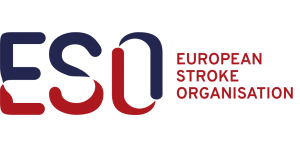Pre-Conference Meeting Report – ESOTA Symposium
By Prof Silke Walter
Chairs: Prof Silke Walter (Saarland University, Germany) and Prof Jean Marc Olivot (University of Toulouse, France)
ESOTA symposium
The symposium was moderated by Associate Professor Louisa Christensen (University of Copenhagen, Denmark) and Professor Ethem Murat Arsava (Hacettepe University in Ankara, Turkey)
The 12th ESOTA educational seminar took place on pre-ESOC day, 23rd May 2023 and focused on: “Running international trials: different perspectives”.
In the first part of the symposium a researcher-to-large pharmaceutical company-perspective of how to design and start stroke trials was addressed. Professor Mira Katan from Basel, Switzerland gave an overview of the rationale behind the first European trial investigating a blood-biomarker guided secondary prevention (MOSES trial) and discussed the importance of investigator-initiated clinical studies from a researcher perspective. Professor Diederik Dippel from the Erasmus Medical Center Rotterdam, The Netherlands informed about research possibilities within a national network and presented the agile activities of the Dutch CONTRAST National Stroke Network. Dr Charlotte Corbisier, Clinical Project Lead from Bioxodes, a Belgian start-up biopharmaceutical company gave an interesting talk about their initiation of a phase IIa study with a first-in-class drug candidate, Ir-CPI, designed to prevent thrombosis and neuroinflammation in haemorrhagic stroke patients. Using the example of tenecteplase studies in Europe, Dr Alain Pages, Clinical Project Lead from Boehringer Ingelheim, Germany illustrated the approach large pharmaceutical companies take, when planning a new study.
With end of the transition period for clinical trial applications in January 2023, all interventional clinical trials submitted in EU and EEA countries have to follow the new European Union Clinical Trial Regulation 536/2014 (EU CTR). There are fundamental changes to consider. Professor Philippe Lyrer from the University of Basel, Switzerland gave detailed insights and introduced the relevant changes, which can be found summarised on the ESOTA website.
In the second part of the symposium, new and innovative study designs were discussed. Professor Dominique Cadilhac from the Monash University in Melbourne, Australia presented possibilities to use “big data” to gain high-quality answers to stroke research questions.
Adaptive trial designs can make research more flexible. Professor Philip Bath from the University of Nottingham, UK discussed the option, challenges and pitfalls of a platform trial.
Artificial intelligence technology and computational models as novel approaches could be an accelerator of clinical research. Dr Praneeta Konduri from the University of Amsterdam, The Netherlands presented information about the work of the INSIST group and in-silico studies for stroke research.

